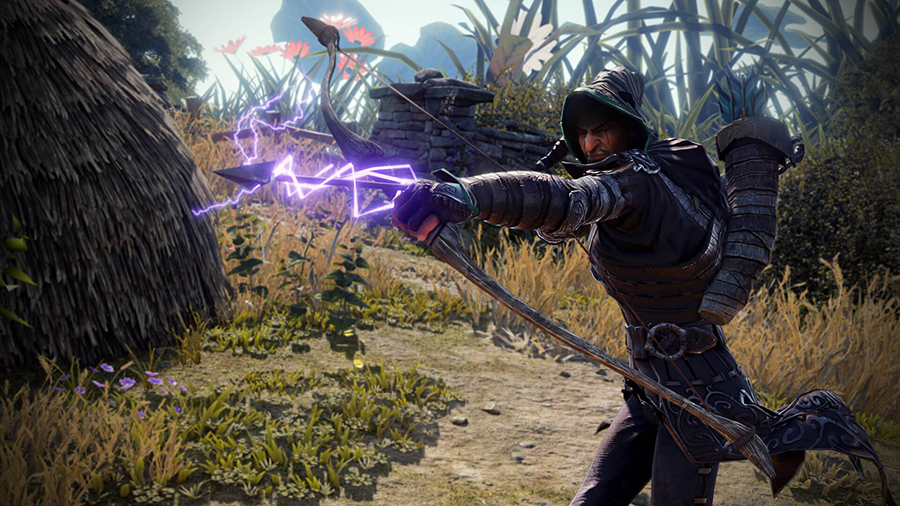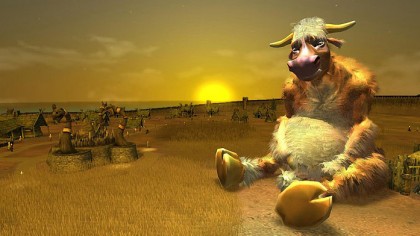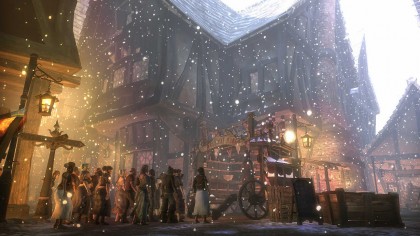Farewell Lionhead, and thanks for all the Fables
The Lionhead sleeps tonight

Sign up for breaking news, reviews, opinion, top tech deals, and more.
You are now subscribed
Your newsletter sign-up was successful
When you stop and think about it, every game is a love affair of sorts, a testament to the individual or collective who poured countless hours into its creation. Even the very worst interactive experiences were, for a time, the focus of someone's passions and ambitions.
When it comes to the games of Lionhead, one of the UK's most loved and influential studios, that sentiment rings truer than most. It's output, from the very best to the least impressive, is infused with a potent sense of humanity and a wit that's unmistakably rich with Britishness.
Which makes the news of its recent closure all the more painful to accept. We're not all heartless bastards, so the thought of some very talented, passionate people having their livelihoods threatened is always going to rankle, but there's a selfish aspect to our very personal response to the news.

A sense of pride
We own the games we play. They become part of our psychological history, informing opinions and frames of reference. They feed our desire to be entertained, to be challenged, to be empowered and made godly for an hour after the kids have gone to bed.
Lionhead games, even the pap ones, offer a unique sense of empowerment and weight, all moulded around a un-anchored moral centre.
Lionhead was an ideas studio - a think tank of curious ideas and concepts, but in a new world of familiar AAA franchises guaranteed to make a sizeable return and low-cost indie games built on a budget, the more obtuse offerings from Lionhead simply weren't a surefire investment.
And while Lionhead isn't the only studio to get shuttered by Microsoft (plenty of Kinect-based outfits have also seemingly been put to the sword), it's loss feels the rawest of all.
Sign up for breaking news, reviews, opinion, top tech deals, and more.
Lionhead made games with heart. Games that came packaged with an intrinsic personality that sung with every button press and cutscene. Games that will, sadly, now live on long after the Lionhead sign is taken down outside its offices. One such slice of emotive artistry was Fable 2, and it remains, without a hint of hyperbole, one of the best games ever crafted.
Kickin' chickens
Like many people that have played a Lionhead game, Fable 2 means something to me. Not a sickly, twee 'I have a terrible, heart-breaking event in my life and it helped me through' way, but something more subtle and intrinsic. Fable 2 and I made a connection back in 2008, and like any great love affair, it's been going strong ever since.

Those reasons it sits so lavishly in my affections aren't for the reasons you might imagine either. Yes, I was fond of my little pooch, the adorable collie that was bouncy and over-enthusiastic as the breed that I had grown up with as a nipper.
Yes, I felt conflicted by the loss of my on-screen sibling and the terrible decision I had to make in the Spire, all my efforts and time in-game seemingly reduced to a simple choice.
I even felt uncomfortable when I had to choose the fate of the world, and the people I had spent nearly 20 hours protecting (I always play a paragon first, it's just my thing), standing alone at Smuggler's Beach, an empty void at my side where a furry friend once wagged his tail with anticipation.
Okay, it was just a dog, but I cared okay? Yes, all of these reasons play a part in Fable 2's enduring personal legacy, but it was the smaller things, those delicately tuned, finely balanced elements that make a Lionhead game a Lionhead game.
Fabled ingredients
Spending hours (and I mean hours) smithing away in the blacksmiths, playing that sweet spot mini-game over and over again, building that multiplayer so you're gold can creep up and up.